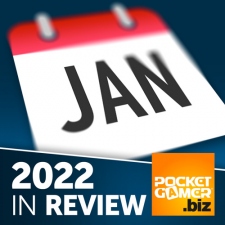2022 was a year of big news and even bigger industry movements. Mobile gaming was no different. Here are the stories that set the scene back in January 2022.
AquiBlizz Begins
Yes, January 2022 saw the very first dawning of the Activision-Blizzard acquisition. It’s easy to forget that, as the kerfuffle rolls on with regulatory scrutiny and even the FTC launching a lawsuit to block it, the most notable aspect of the deal was just how large the acquisition was. Once passed, Microsoft would be the owners of World of Warcraft, Call of Duty and the mobile powerhouse that is King, perhaps most famous as the makers of the world-famous Candy Crush.
Whether or not the acquisition eventually goes through (our bet is that Microsoft wants a mobile foothold badly enough to make concessions to regulators), it’ll still go down in history as one of the largest acquisitions ever proposed.
Krafton sues Garena
Krafton are a publisher and developer with a great deal of pedigree, publishing arguably the progenitor of all battle royale games: PlayerUnknown’s BattleGrounds. However, ever since it’s been overshadowed in many ways by other titles, including the global mega-hit that is Epic Games’ Fortnite. It’s a slip from dominance that has in many ways been justifiably frustrating for Krafton.
However, performing a repeat of their infamous ‘iconic frying pan’ lawsuit, taking aim at Garena over their Free Fire games certainly was a bold move. They argued, similar to their previous suit in 2018, that the game infringed on major aspects of the battle royale experience central to PUBG. The irony is that much like the game itself, when you’re the first to enter the fray, everyone ends up copying you to some degree.
Freezing Conditions
The gaming licence freeze in China was big news, mainly due to how it effectively deadlocked Chinese game developers and put the anchors on an explosion of new titles and money-making. The country is no stranger to strong (some might say heavy-handed) and opaque regulatory oversight, however, for a country that ranks as the largest in the world for mobile gaming on player-base and revenue, the moves were as surprising as they were severe.
China boasted many small studios that attempted to make their mark on the industry on the upside. Now, ironically, by causing these studios' demise, Chinese regulators may simply have strengthened the monopoly held by larger developers such as NetEase and Tencent.
Mobile gaming’s four day week
Hutch and ArmourGames both began trialling the idea of a four-day work-week in January 2022. A four day work-week is exactly how it sounds, with employees taking Fridays off and enjoying a longer, three day weekend. The benefits are still being assessed, but aims are that the move helps improve productivity, leaves employees feeling more rested after their extended break and has zero impact on productivity.
After trialling the process from January, Hutch would later confirm in December that they were keeping their four-day work-week in place as official policy, in a clear endorsement of the efficacy of this working format. Whether we’ll see more companies, especially in mobile gaming where deadlines can be tight and the idea of taking time away may seem anathema, is yet to be seen.
Do you have a favourite mobile story from 2022? Take to Twitter with the hashtag #PocketGamerYearInReview to tell us your highs and lows of the year.
Want more? Get our pick of the best stories from February here.





















